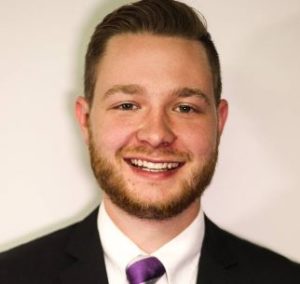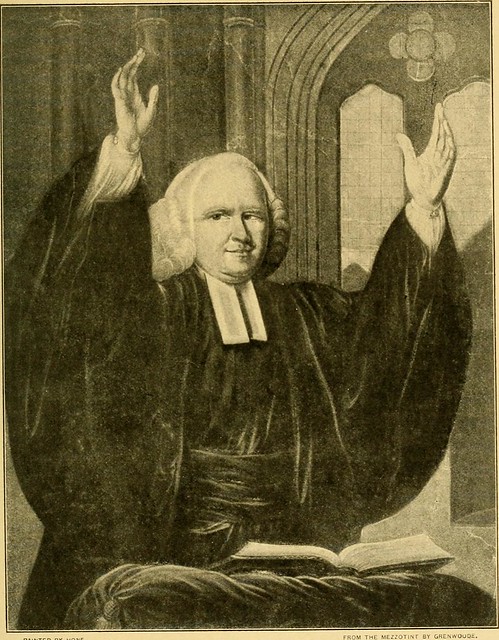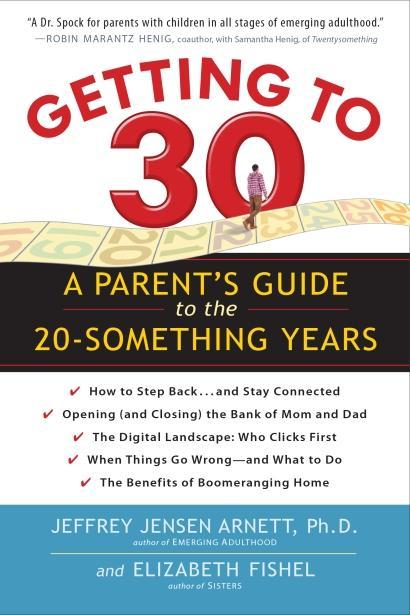 The steady decline of Church of Scotland membership to some 360,000 persons is well documented. It is therefore no surprise that linkages, closures and reduction in number from the prevailing 46 presbyteries are envisaged. However, the main challenge is the alarming lack of young adults attending church. In many congregations perhaps 70 per cent will be 60 years of age and more. It is no longer one generation missing, but two. This is the emergency which must be addressed even before the present structure of presbyteries is considered. Continue reading
The steady decline of Church of Scotland membership to some 360,000 persons is well documented. It is therefore no surprise that linkages, closures and reduction in number from the prevailing 46 presbyteries are envisaged. However, the main challenge is the alarming lack of young adults attending church. In many congregations perhaps 70 per cent will be 60 years of age and more. It is no longer one generation missing, but two. This is the emergency which must be addressed even before the present structure of presbyteries is considered. Continue reading
Tag Archives: young adult
Theology on Tap – To Drink or Not to Drink
While hosting a Theology on Tap ministry may or may not fit your church context, here is an article that discusses how one church has found a way to connect with emerging adults. It also provides an introduction that all churches must answer regarding how to approach drinking alcohol among emerging adults.
EFFINGHAM — Glasses filled with wine and other alcoholic beverages were scattered atop a dimly lit table in Village Wine in Effingham. It’s an unsuspecting setting for prayer and religious discussion, but that’s what happened there on Jan. 19.
And it’s what happens there every third Thursday of the month for “Theology on Tap” meetings. The gatherings bring religion to young people in a relaxed environment.
Click Here for the entire article.
Scroll down for highlights.

Here are some highlights of the article:
- “It’s a way to meet other young adults without needing the party scene,” Highlights Emerging Adults need for Community
- “Too many people don’t see the beauty in them,” she said. “The potential in them. The mystery.”
- “Theology on Tap is something a lot of churches around the world have adapted to reach young people. It brings people together in a responsible way.”
If you work with emerging adults, you will be working alongside both adolescents (who cannot legally drink) and those over the legal drinking age. As a ministry you will be challenged to establish policy and practices on what role drinking can have within your community.
Here are a few questions to ask yourself as you lead your community:
- How can we allow autonomy among emerging adults concerning this issue?
- What role(s) can drinking alcohol play in our community?
- Does your religious community have any policies regarding this issue among other adults?
- How do we identify when drinking as a group or for an individual might need addressed?
- Does your religious community have a policy regarding this issue among adolescents? How should it be the same? How should it be different?
- Is there a difference in policy and practice from when a gathering is attending/organized directly by a church representative than when community members organize their own outings?
- What values are driving our decisions?
I am sure there are more questions, please share your thoughts/questions below.
 Dr. G. David Boyd is the Founder and Managing Director of EA Resources, a non-profit designed to equip parents and the church to minister to the needs of emerging adults.
Dr. G. David Boyd is the Founder and Managing Director of EA Resources, a non-profit designed to equip parents and the church to minister to the needs of emerging adults.
Emerging Adults, Emerging Worship – Seminar by Todd Cioffi
This seminar if from the Calvin Symposium on Worship from 2012. While it is a few years old, it speaks on an important topic of how emerging adulthood will affect the church.
The recording provides a definition of emerging adulthood and why this matters for the church in regard to how churches worship.
Todd Cioffi is assistant professor of Congregational and Ministry Studies at Calvin College and research fellow at the Calvin Institute of Christian Worship.
Making Curriculum work for Emerging Adults
As someone who has taught thousands of Sunday School and bible studies, I know how a good curriculum can make or break an evening. When I launched a small group for emerging adults, it was difficult to find something that was both age appropriate and well-written. There is currently not a huge selection targeted to young adults, but I believe the number will grow as churches realize the unique challenges facing emerging adults.
As you work to make a curriculum work for you, here are some thoughts to help you.
Remember that curriculum is never a finished product. If your first look at the curriculum is while you are opening your group in prayer (I might know from previous experience.), then you are in trouble. Curriculum is a tool to help you craft your lesson. Never present curriculum to your group, but use curriculum as a tool to create something crafted specifically for your community.
Become a student of emerging adults. If you already possess a knowledge of the characteristics and challenges of emerging adulthood, then you can take any curriculum designed for adults, and use it for your group. If the rest of the church is doing a specific bible study together, then include your group. Using the same curriculum, can build bridges between emerging adults and the rest of the congregation.
Learn to ask great questions. Asking great questions doesn’t happen naturally, but takes time and skill. Asking the wrong question can leave the group silent and afraid to speak. Asking a great question can lead members of your group to share their knowledge, offer a different perspective, share from their personal journey, or demonstrate how to apply the lesson to their lives. If I were training a new small group leader, I would rather see a page full of great questions than pages of notes. Emerging adults want to participate in the group rather than be silent observers. Great questions are a pathway to participation.
Regularly ask your community what curriculum or studies have worked, and what has not worked. Your group members have an opinion, and likely are not afraid to share it. Each group is unique, and rather than mass-market Christianity, they may need something that speaks to your particular community.
Ask yourself the question, “What interests me?” Passion (or a lack thereof) within the teacher always comes out. If you are bored, then how do you expect others to pay attention?
Here is a list of curriculum for emerging adults.
If you know of additional resources, please contact me at gdavid@earesources.org.
 Dr. G. David Boyd is the Founder and Managing Director of EA Resources and the EA Network. If he can equip your community to minister to emerging adults, contact him at www.earesources.org.
Dr. G. David Boyd is the Founder and Managing Director of EA Resources and the EA Network. If he can equip your community to minister to emerging adults, contact him at www.earesources.org.
The Millennial Exodus – Caleb’s Story
(This is part of a series written by Millennials who have either left or stuck with the church. If you are a Millennial and would like to submit your work for publication, you will earn $100. Here is the link. To read more stories by Millennials search Millennial Exodus. If you would like to fund our research among emerging adults, click here.)
Here is Caleb’s story.
I’ve been a Christian for as long as I can remember. My first childhood memories are of vacation bible school and Sunday family lunches. The church has been a part of me since I was born, and its presence in my life grew and grew throughout the years. I experienced the Holy Spirit countless times during my youth years at church camp and on mission trips, but after I graduated high school, my faith took a turn for the worse.
Make no mistake; during my first year of college I was still a Christian, but even I knew that I was lukewarm at best. I stopped attending church, and with that decision, my faith began to slip away from me. After almost an entire year of ignoring God, I knew I had to take action.
I found a group of Christians student through a local campus ministry who put God first and helped me regain my relationship with God. I immediately felt overwhelmed by the sincerity and generosity these believers displayed to me. As I began to involve myself with this community, I built strong and faithful friendships. This change of community also led me to devote more of my time and energy to my faith.
I stuck with the church because when I lived my life without it, I hated what I saw.
My desires were earthly, my relationships were shallow, and my spirit was starved. In retrospect, I understood how truly lonely and apathetic I felt without the body of Christ. I had taken for granted the bond of Christian fellowship which I enjoyed my entire childhood. This fellowship displayed through the sincere relationships and genuine kindness of a church family drew me back into the arms of my Father.
After almost two years, I thank God for allowing me to know His presence is in my life, and for accepting me back into His loving family. I pray that if I come upon someone going through the same struggles, that I can provide the help others so graciously provided to me.
 Caleb Norris is a student at the University of Tennessee at Chattanooga with a major in business management. Caleb was born and raised in Winchester, Tennessee and is the oldest of three children. In his spare time, Caleb enjoys reading, fishing, and playing guitar. Please pray for Caleb as he continues his walk with Christ throughout his life.
Caleb Norris is a student at the University of Tennessee at Chattanooga with a major in business management. Caleb was born and raised in Winchester, Tennessee and is the oldest of three children. In his spare time, Caleb enjoys reading, fishing, and playing guitar. Please pray for Caleb as he continues his walk with Christ throughout his life.
Preaching to your Adult Child – Here is Their Perspective.

© 1902 Internet Archive Book Images, Flickr | PD | via Wylio
If you are a parent, then there are times when your child feels as if you are preaching at them. If you don’t know your favorite topics, just ask them (if you are brave).
This article written by an emerging adult explains the thought process for your child as you discuss issues that you don’t agree upon – including faith. While this article may not reflect the relationship between you and your child, there is much for parents to learn from this writer’s perspective.
Within five minutes of starting the hour-long car ride, she asked me if I wanted to explain my theological beliefs to her.
Awkward.
At this point, I had three options…
Read the entire article – HERE.
I wanted to summarize the points, but found too much that I wanted my readers to see and feel. But I do want to highlight the author’s main conclusion:
I ask ‘when the preaching will end’ because with conservatives I consistently feel that I am being preached at by people who don’t care to understand me as a person, while with liberals I feel that I am becoming a part of a movement which is built on compassion and mutual understanding.
Within our homes, churches, and the public square – communication is key.
Most Christians ignore the role of the Holy Spirit, and focus on conversion tactics when speaking with those outside the church – including their children. Dialogue and diversity are welcome in today’s culture, but when someone in a conversation feels the need to be right – it will turn people from the beauty of the gospel.
This author is a follower of Jesus who was raised in an evangelical home. Unfortunately, this emerging adult found the “extra baggage” of present-day Evangelical culture (which I use to refer to anything not required by the original tenants of the movement) to be completely overpowering to their spiritual journey. I believe that some emerging adults find these beliefs so restrictive that they abandon the faith completely.
Related Links:
- The Fracturing of Evangelicalism: Will Millennials be the Wedge?
- How Evangelicals are losing an entire generation?
- After they have gone – Encouragement for parents of prodigals
- Needing to know why they left – Encouragement for parents of prodigals
 Dr. G. David Boyd is the managing director of EA Resources – a non-profit designed to equip parents and churches to engage emerging adults. He is also the founder of the EA Network – a community of people who serve and love emerging adults.
Dr. G. David Boyd is the managing director of EA Resources – a non-profit designed to equip parents and churches to engage emerging adults. He is also the founder of the EA Network – a community of people who serve and love emerging adults.
You are not alone – A Bible Study for Parents of Young Adults
I had the privilege of meeting with Corey Magstadt who runs a ministry to serve young adults in the community of Chaska, Minnesota. Corey seeks to minister to emerging adults and their parents through his Launch ministry. After years of running support groups for parents, he wrote a resource called, “You are Not Alone.”
 Parenting emerging adults while rewarding is sometimes a difficult job. Parents often feel isolated because their words might embarrass either themselves or their adult children. This is especially true in the church where parents often feel as if they have failed. Corey writes, “Sadly, our churches often forget that one of the primary roles of the body of Christ is to be a hospital for sick and broken people.”
Parenting emerging adults while rewarding is sometimes a difficult job. Parents often feel isolated because their words might embarrass either themselves or their adult children. This is especially true in the church where parents often feel as if they have failed. Corey writes, “Sadly, our churches often forget that one of the primary roles of the body of Christ is to be a hospital for sick and broken people.”
A desperate need exists for safe places for parents to share their experiences. Corey envisions small groups that meet on a regular basis to share a part of this journey. I believe that groups could be led by churches, educational institutions, non-profits, or other social organizations who have a passion for emerging adults and their parents.
The book includes a discussion guide for each lesson. Each week begins in a similar fashion including time for each individual to share. Then a different topic is discussed revolving around the specific needs of emerging adults and the transition of their role as parents. A Facilitator’s Guide is available which provides practical advice to launching your own group. It includes supplemental information for each of the 12 sessions.
 Corey is the founder of Launch Ministry, a faith-based non-profit organization established to expose emerging adults between 18-25 years old to opportunities that will promote healthy, productive transitions into adulthood. Launch Ministry assists young people in a holistic transition by providing them with tools to develop life skills, opportunities to lead and serve, and by promoting spiritual and character formation. Corey lives in Cologne, MN with his wife Lori, and their children.
Corey is the founder of Launch Ministry, a faith-based non-profit organization established to expose emerging adults between 18-25 years old to opportunities that will promote healthy, productive transitions into adulthood. Launch Ministry assists young people in a holistic transition by providing them with tools to develop life skills, opportunities to lead and serve, and by promoting spiritual and character formation. Corey lives in Cologne, MN with his wife Lori, and their children.
You can purchase You are not alone– Particpant’s Guide here.
You can purchase You are not alone- Facilatator’s Guide here.
Living at Home as a Adult / Living at Home as a Child – Which are you?
According to research, “40% of 18 to 34 year olds are living at home with one parent or both. Looking at the younger, 18-to 24 year-old group, more than half have moved back home, at least for a time, in the past few years- or never moved out. Ther percentage is about the same for men and women. (Arnett, Getting them to 30, 109)
In a society where more emerging adults are living at home, adulthood cannot be based upon markers such as living independently, but upon the deeper Biblical principles of Vocation, Autonomy, and Community.
While living at home still carries a negative stigma in many social circles, living at home is not always a negative experience – for the child or the parent. “Almost 70% of young people 18-34 who are living at home with their parents say they are very satisfied with family life.” (Arnett, 110)
In this video, the speaker makes several points to illustrate the difference between someone who lives with parents as an adult versus someone who lives at home with an immature perspective.
Here is a link to the full video.
The video states that those who live at home as a Child…
- treat the home as a hotel.
- are frivolous spenders.
- always have something to prove.
Those who live at home as an Adult…
- always contribute.
- are not afraid to serve parents and siblings.
- respect their parents wishes and home.
While the fact that you are living with your parents does not make you a child, how you act while living at home does indicate your maturity.
One of the first points made in the video is that there are several healthy reasons why children choose to live with their parents (including finances and physical health). While the predominant western mindset values living independently, many cultures have always valued communal living for extended families.
So are you living at home like an Adult or a Child?
Other Links:
- Considering Moving Back Home?
- Arnett and Fishel, Getting to 30: A Parent’s Guide to the 20-Something Years
- Guess who care for those who move back home
- Setting some Boundaries while Living at Home
Blazing New Trails within the Church
 I want to share the story of a trailblazer -she didn’t see a path for her beyond youth group, so she made one. Continue reading
I want to share the story of a trailblazer -she didn’t see a path for her beyond youth group, so she made one. Continue reading
Getting them to 30 – A Book Review
 Getting to 30 by Jeffrey Arnett and Elizabeth Fishel is an excellent read on a parent’s changing roles during the emerging adult years. The book does a great job of balancing research, stories, and practical suggestions for parents of emerging adults.
Getting to 30 by Jeffrey Arnett and Elizabeth Fishel is an excellent read on a parent’s changing roles during the emerging adult years. The book does a great job of balancing research, stories, and practical suggestions for parents of emerging adults.
In a world that often calls young adults lazy and narcissistic, I applaud the positive perspective of emerging adulthood. They state that both 20-somethings and their parents “generally see themselves as being at a good time of life, characterized by freedom, fun, and excitement, a time to focus on themselves and find out who they really are.” (Arnett and Fishel, xi)
The book gives practical ideas about how parents can learn the “essential art of staying connected while stepping back.” (Arnett and Fishel, x) Parents need to understand that some of the struggle in their relationship with their children is because that, “the maturation process is two headed – Parent and Child need to mature into new roles.” (Arnett and Fishel, 69)
This book does not come from a specific religious perspective, but I believe that Christians will find its information and advice helpful. It is the best book that I have read on the topic of parenting an emerging adult.
When addressing faith, the book states, “The best way to persuade children of the value of your faith is to show the fruits of it in your life, including your capacity to forgive your sons and daughters for not believing what you believe.” (Arnett and Fishel, 240) Allowing your children to have true autonomy includes their decisions about faith. For parents who have children who have left the church, this can be a painful process, here is an article that I hope will help you in your journey.
If you have other suggestions of books about parenting emerging adults, please leave a note below.
Dr. G. David Boyd is the Founder and Managing Director of EA Resources, a non-profit designed to equip parents and churches to minister to emerging adults.








